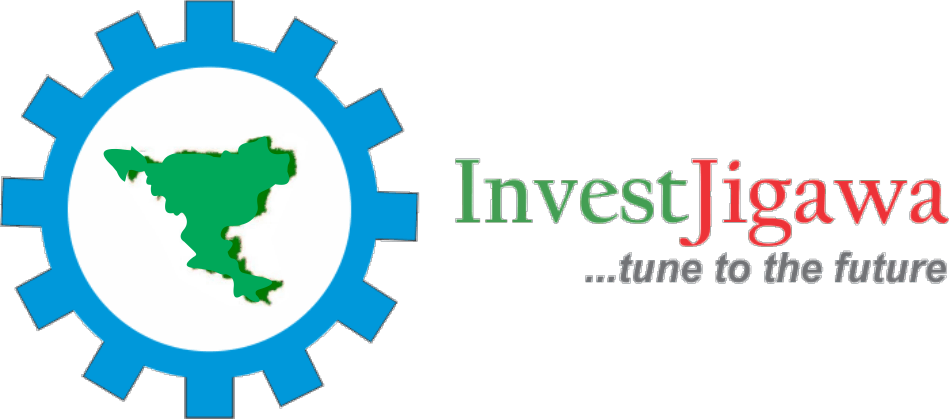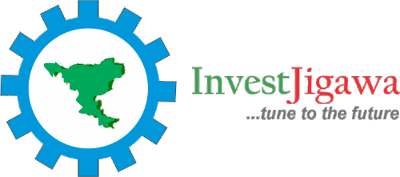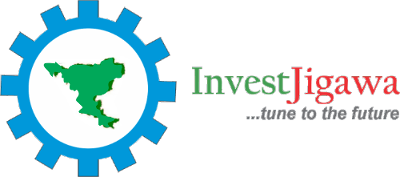Macroeconomic Overview:
Jigawa’s economy is largely agrarian, contributing more than 60% to the state’s GDP, which was estimated at ₦2.26 trillion in 2020. While agriculture dominates, other sectors, including mining, manufacturing, and trade, hold significant growth potential. The state’s strategic position offers access to domestic and international markets, with export commodities such as sesame seeds, hibiscus, cotton, maize, sorghum, millet, groundnut, rice, and wheat among others playing a major role. The export activities carried out from the state primarily serves markets in China, India, Europe, Mexico, and the ECOWAS region, reflecting the state’s capacity for international trade.
Despite these strengths, the state faces challenges such as limited access to finance, inadequate infrastructure to support export activities, and weak trade facilitation mechanisms in line with global best practice. To overcome these barriers, the Jigawa State Government has been focusing on initiatives like improving infrastructure, providing better access to funding for small-scale farmers, and developing policies to enhance trade – such as the Export Promotion Strategy and Comprehensive Development Framework (CDF III).
Recent diversification efforts have broadened investment opportunities in sectors like renewable energy, solid minerals, light manufacturing and livestock. There is also strong government support, stable fiscal policies, and a focus on creating an enabling environment for business.
- GDP Growth: Jigawa has experienced moderate but steady GDP growth over the last five years, with agriculture contributing approximately 65% of the state’s GDP.
- Inflation Rate: The state mirrors Nigeria’s national inflation trends, with an inflation rate of around 18%, driven largely by food prices and rising input costs. However, government initiatives to stabilize prices and ensure market linkages have been effective. An example is the establishment of the Jigawa State Palliative Shop.
- Public Finance: Jigawa maintains a prudent fiscal management approach. The state is strategically investing in infrastructure development, agriculture, education, and healthcare to stimulate economic growth, boost productivity, and enhance human capital.
- Trade and Investment: Jigawa State offers various incentives to investors, including tax holidays, land allocation for agricultural and industrial use, and simplified business registration processes. The state is implementing sound reforms that are meant to ensure improvement in ease of doing business, and also, the investment and industrial policies are being developed to align with the revised Jigawa State Agricultural policy, CDF III, and 12-point agenda of the present administration.


Labour Market Potentials:
Jigawa State boasts a youthful and growing labour force, with over 60% of the population under the age of 35. This provides a rich pool of labour for industries requiring both skilled and semi-skilled workers.
- Unemployment Rate: Jigawa’s unemployment rate stands at approximately 30%, providing a large, willing workforce for industries in need of labour.
- Human Capital Development: The state government, in collaboration with international development partners, is investing heavily in technical and vocational education programmes to enhance the employability of its youth. A dedicated state Youth Empowerment and Employment Agency has been established under the Governor’s office with adequate funding for implementation of relevant projects and programmes.
- Agricultural Workforce: The agricultural sector employs approximately 90% of the state’s population, offering significant labour potential for agribusiness and agro-processing industries.
- Labour Costs: Jigawa has relatively low labour costs compared to Nigeria’s southern states, providing a competitive edge for labour-intensive industries.
Infrastructure Overview:
Jigawa State is strategically positioned to support investment growth through its infrastructure network, which is continually being developed and upgraded. The state government recognises that well-developed infrastructure is crucial for attracting investments and enhancing economic activities. Below is an overview of the key infrastructure components that facilitate business operations in Jigawa State:
- Road Network: Jigawa boasts one of the best road networks in Nigeria, connecting major towns and local government areas. The state has over 3,600 kilometers of paved roads, facilitating easy movement of goods and services. This connectivity to neighboring states and major markets, including Kano, Nigeria’s commercial hub, enhances logistics efficiency. Key road infrastructure such as the Kano-Kazaure-Daura highway facilitates trade with other Northern states and the neighboring Niger Republic. The National Competitiveness Index Report of 2018 by the National Competitiveness Council of Nigeria, ranked the state 1st on quality of roads among the 36 states and FCT, Nigeria.
- Railway Access: The ongoing (Lagos-Kano-Maradi) development and existing (Kano-Nguru) railway lines are expected to further improve transport logistics, reducing the cost and time associated with moving raw materials and finished products. The proximity to the proposed Lagos-Kano-Maradi railway project, with a spur that lands in Dutse the Jigawa State capital, offers significant opportunities for freight transport.
- Airport Facilities: The state is served by the Dutse International Airport, which enhances air travel for business executives and allows for the quick transportation of high-value goods. Recently, Nigeria’s Federal Government approved the Dutse International airport to serve as one of the cargo airports in the country to ensure connectivity that will facilitates trade and investment by providing access to domestic and international markets.
- Electricity: The Jigawa State government is focused on improving electricity supply, with initiatives to enhance power generation and distribution, with the established 60x2MVA power substation around Gagarawa LGA, only 5 kilometres from Gagarawa Industrial Park. This commitment aims to ensure a stable and reliable power supply for industries, reducing operational costs and fostering a conducive environment for investment. Jigawa is also home to Nigeria’s proposed 1GW solar plant to be established at Gwiwa LGA which will be connected to National grid, and other private investment proposals in solar power are in pipeline. Plans are in place to expand these commitments, supporting the state’s energy ambitions through the newly constituted Ministry of Power and Energy, under which a bill for the enactment of the proposed Jigawa State Electricity Act, has been developed and submitted to the state assembly. It is noteworthy that the state has explored opportunities in solar and wind energy to rural areas, promoting energy access for small businesses. The state had in 2022 adopted an Off-Grid Solar (OGS) Policy and Implementation 2022 to 2030.
- Water Infrastructure: Access to clean water is vital for both residential and industrial needs. Jigawa State has invested in improving water supply systems, including boreholes and treatment plants, ensuring availability for agricultural and manufacturing sectors. Jigawa’s water infrastructure supports agriculture, with large irrigation projects like the Hadejia Valley Project providing water for both farming and domestic use, and the Presidency’s Irrigation Nigeria Project being implemented by NACENI, under which the State has been selected as one of two pilot states. Efforts are also ongoing to enhance sanitation infrastructure which contribute to a healthier environment, and is crucial for attracting both local and foreign investments.
- Gagarawa Industrial Park: This is a 170.8 ha with over 70 plots multi-use industrial park owned and managed by the Jigawa State Government to serve as a regional manufacturing, trade, logistics and distribution hub. This emerging industrial park is designed to attract agro-allied and manufacturing businesses, providing necessary facilities and incentives for investors. The park aims to enhance the state’s capacity for processing agricultural products and other raw materials, thus driving economic growth. The state is collaborating with the Manufactures Association of Nigeria (MAN) to promote the development of the park. So far, 15 plots have been allocated to MAN – affiliated companies, and 20 plots to other investors. Infrastructure development (road, electricity, and water) for phase one of the 3 phases of the park have been completed and construction activities by some of the companies are ongoing.
- Special Crops Processing Zones: This zone is being established to promote value addition in agricultural production, facilitating partnerships between farmers and processing companies, and encouraging investment in agro-industrial activities.
- Special Agro-industrial Processing Zone: The Federal Government of Nigeria (FGN) has initiated the Special Agro-industrial Processing Zones (SAPZ) programme, in collaboration with state governments, development partners, relevant federal ministries, departments, private investors. This aims to establish agro-processing clusters in agriculturally rich regions nationwide. Funded by the African Development Bank, Jigawa state has been selected for phase 2 of the programme. The objectives for the state government include elevating household incomes, rural job creation, enhancing food security, and supporting inclusive and sustainable agro-industrial development. The state government’s selection aligns with its agenda on agriculture, rural development, and poverty reduction, signaling a timely endeavour to enhance smallholder farmer productivity, facilitate rural infrastructure development, and unlock market linkages for value addition and export prospects.
- Communication Infrastructure: Jigawa has seen improvements in telecommunications, with increased mobile network coverage and internet access. Reliable communication systems are essential for business operations, allowing for efficient information exchange and connectivity. In this regard, a dedicated Digital Economy and Communication Agency has been constituted by the state to ensure appropriate exploitation of the promising opportunities in the sector. There has also been a complete overhaul and upgrade of the state-owned Galaxy Information Technology and Telecommunication Limited which was the initial source of the present Galaxy Backbone of Nigeria. The State Government has also completely eliminated Right-of-Way charges for telecommunication companies, to further deepen internet penetration.
- Jigawa State Investment Promotion Agency (InvestJigawa): This Agency serves as a one-stop shop for investors, providing guidance on investment opportunities, regulatory processes, and available incentives. It plays a critical role in facilitating investments and ensuring that investors have the necessary support to navigate the local business landscape.
Jigawa State’s agribusinesses, solid minerals, and manufacturing sectors are key drivers of its economic transformation among other priority sectors. With abundant natural resources, a growing industrial base, and an enabling business environment, Jigawa offers promising opportunities for investors. The state’s competitive labour force, strategic location, and government support provide an ideal platform for investments in agro-processing, mineral extraction, and manufacturing. As Jigawa continues to improve its infrastructure, regulatory frameworks, and sectoral policies, it is positioning itself as a leading destination for investment in Northern Nigeria. Investors are encouraged to explore the wealth of opportunities in agriculture, mining, manufacturing, renewable energy, tourism and hospitality; leveraging the state’s competitive advantages and government incentives. The state government’s focus on infrastructure development, particularly in roads, electricity, water, and industrial parks, ensures that investors benefit from easy access to resources, raw materials, and markets. The development of railway connections to Kano and other northern states further bolsters Jigawa’s attractiveness as a manufacturing hub.

